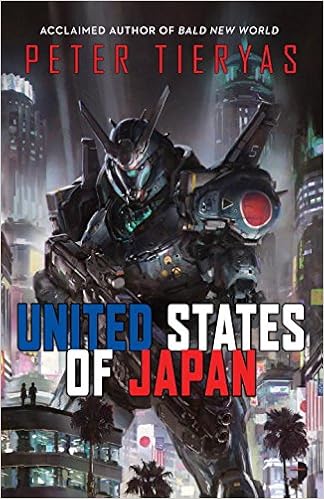
It promises giant mecha in America in March. Only then will readers find out if it is unadorned adventure fiction, or yet another casualty of the Pink SF plague.
Last week, China Mieville’s latest novel debuted: This Census-Taker. I was surprised to discover this, as I thought his King Rat, The City and The City and Embassytown were notable and strong outliers of the past decade in an otherwise generally weakening genre.
From the description:
In a remote house on a hilltop, a lonely boy witnesses a profoundly traumatic event. He tries—and fails—to flee. Left alone with his increasingly deranged parent, he dreams of safety, of joining the other children in the town below, of escape.
When at last a stranger knocks at his door, the boy senses that his days of isolation might be over.
But by what authority does this man keep the meticulous records he carries? What is the purpose behind his questions? Is he friend? Enemy? Or something else altogether?
Filled with beauty, terror, and strangeness, This Census-Taker is a poignant and riveting exploration of memory and identity…
Thus, for the first time, I am rocked gently to sleep before finishing the description of Mieville book. Add to it that it is a novella, and costs twelve dollars on kindle, and the publisher has successfully moved a “must read” author into the “bargain bin if I notice it” pile.
For reference, here’s the first lines from Embassytown’s blurb:
In the far future, humans have colonized a distant planet, home to the enigmatic Ariekei, sentient beings famed for a language unique in the universe, one that only a few altered human ambassadors can speak. Avice Benner Cho, a human colonist, has returned to Embassytown after years of deep-space adventure. She cannot speak the Ariekei tongue, but she is an indelible part of it, having long ago been made a figure of speech, a living simile in their language. When distant political machinations deliver a new ambassador to Arieka, the fragile equilibrium between humans and aliens is violently upset. Catastrophe looms, and Avice is torn between competing loyalties…
Coming soon is The United States of Japan, an alleged “spiritual” successor to PKD’s The Man in the High Castle, which we analyzed in some detail last year. Although I’m extremely skeptical of the book’s “spiritual successor” business, the idea itself sounds intriguing, from an author who did work on the adventure-heavy Guardians of the Galaxy movie:
The Axis won WWII and now, in the late 1980s, the Japanese Empire rules over the western US states, their power assured by technological superiority (giant mecha, etc.) But when a video game emerges that posits a world where the allies won, a game censor and an Imperial Government agent discover truths about the empire that make them question their loyalty.
I read between the lines of this and see an opening for the ideological entryist to ruin a perfectly fine adventure story. Frankly, the fact that the author has won modern-day awards should also inspire skepticism. But knowing absolutely nothing about this individual author, I’m going to give the book a look when it comes out in a few weeks.
I was mildly surprised to see both of these new releases come out only to realize that I was only remotely interested in the one that wasn’t by China Mieville!
It’s fascinating to see all the revived interest in the idea of the USA losing WWII. It’s almost as if something has happened to make the West question whether its victory was worthwhile, or even desirable.
Now, what could possibly have happened to cause so many people across the West to question the long-term fruits of their victory?
What’s interesting to me is that the seminal Japanese sci-fi WWII-what-if (Kerberos Panzer Cop saga) wasn’t “What if the Axis won the war?” but rather “What if they Axis lost differently and less badly?”
That’s probably because there were no circumstances in which the Japanese could even conceive of “winning” a war with the USA.
Their most optimistic plan involved the USA getting a bloody nose and deciding to leave the South Pacific to Japan. The industrial balance between the two nations was so great that it rendered any serious war hopeless… and all the Japanese politicians and military officers knew it.